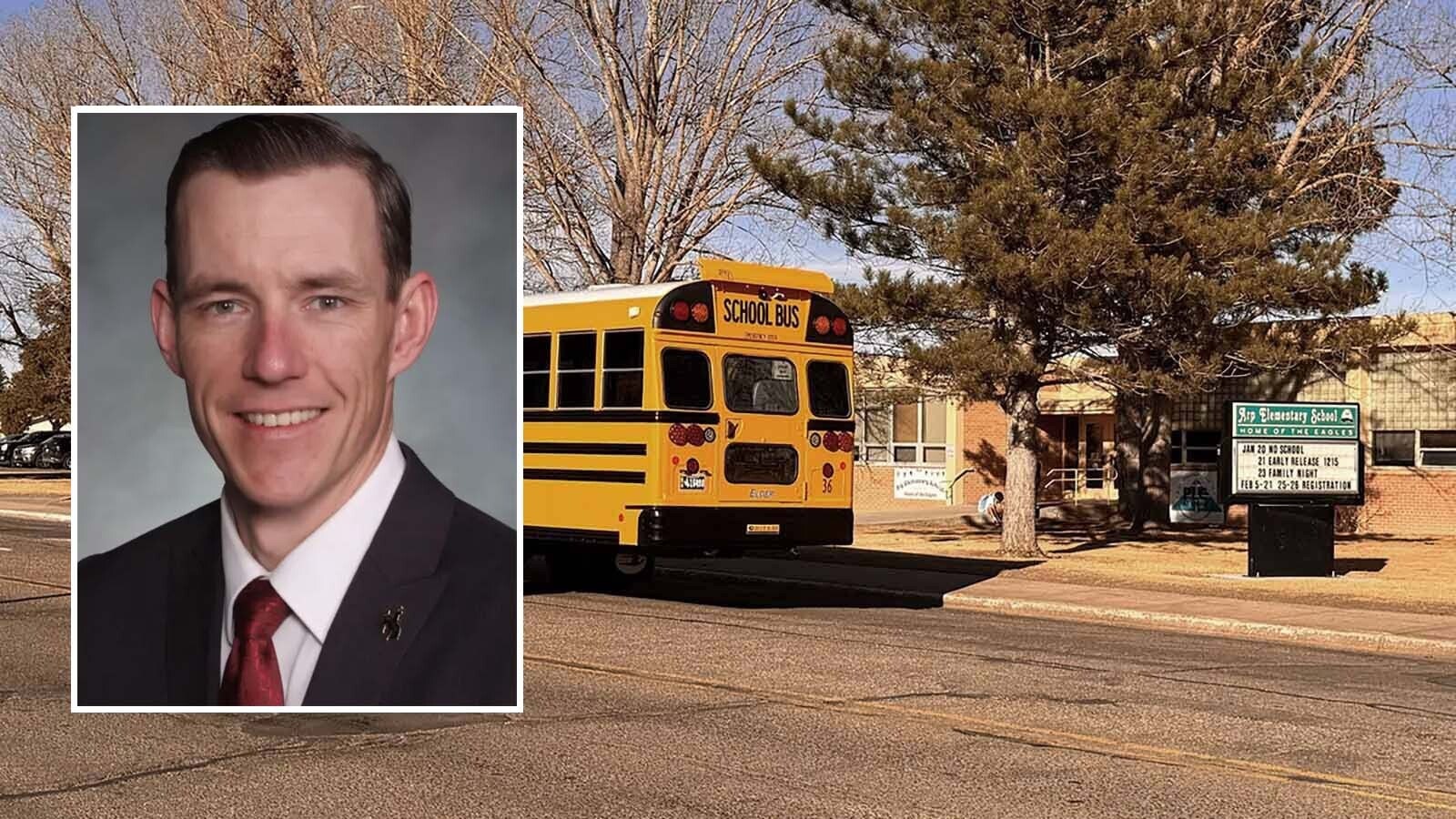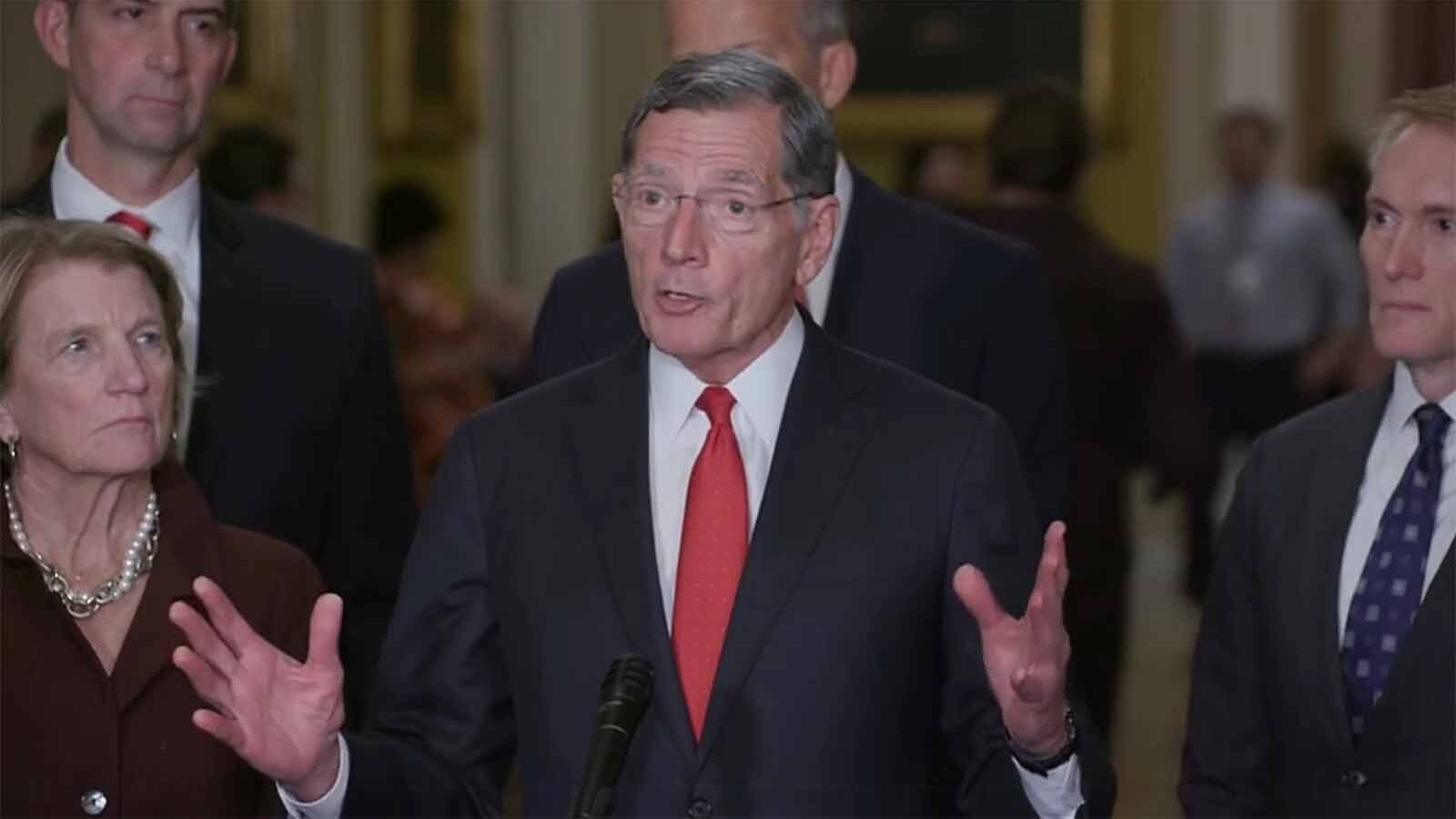When Wyoming lawmakers met Tuesday in Casper to recalibrate the way the state funds public education, some of the most vocal attendees urged Wyoming to train up plumbers, welders and electricians.
Tuesday was the first of two days of meetings for the legislative Select Committee on School Finance Recalibration.
The state’s education finance consultant Larry Picus of Picus, Odden & Associates, devoted significant time to addressing a Laramie County District Court judge’s February order requiring state lawmakers to reevaluate the state’s public school funding model in earnest and find out how much education costs.
The judge ordered the state to address teacher retention, contribute more for school lunches and increase the prevalence of computers, school resource officers and mental health counselors.
Some speaking for Wyoming’s blue-collar sectors came in with their own concerns Tuesday, saying schools aren’t filling employers’ “massive” needs for workers.
“A mile to the west of us at Austin Engineering, they need 130 welders,” said Rob Hill, public policy chairman at the Wyoming Association for Career and Technical Education. “To the north of us just a mile, general contractor GW Mechanical needs eight plumbers.”
And to the northeast, a company needs 25 electricians, for jobs paying between $100,000-$150,000, while another general contractor needs “3,000 construction workers they could hire tomorrow,” Hill said.
Those “massive needs,” Hill continued, exist likewise in the trona mines and the tourism industry.
A key obstacle at Wyoming public schools is a shortage of space, said Hill; new school buildings “shrunk” space for career and technical education (CTE). He also said the state isn’t offering enough programming to middle-school-age students, though much of that kind of learning starts at that age.
Hill referenced an earlier statement by Picus in which the finance analyst said he and his colleagues have been conducting listening sessions with school workers in the “four corners of the state” this year to hear what the districts’ needs and issues are.
“I think many of our business partners — I’m guessing — were probably not at (those) panels because they were probably out helping the state run,” said Hill.
But the educators who attended those panels voiced some of the same concerns as Hill did, indicates a later slide Picus presented to the committee. They spoke of inadequate funding and the need for CTE resources at the middle school level, the slide says.
Joseph Martinez, a CTE teacher at Niobrara County High School, told the committee he worries the state will “kind of overlook” CTE and let it fester when, by his view, it should be a “priority.”
Martinez testified, as had Hill, that local businesses contribute materials toward CTE programs in schools.
“Without those valuable donations, we’d really struggle in my district,” said Martinez.

If You Can Do That Though …
Johnson County School District Superintendent Charles Auzqui, who said he’s a former CTE teacher, said lagging teacher pay could be hindering those programs.
“We are competing with the CTE world,” said Auzqui, adding that, with some blue-collar jobs paying around $120,000 and teacher wages sitting closer to $60,000, it’s hard to find a qualified CTE teacher who wouldn’t rather be out in the field.
Wyoming lawmakers have been working in this area recently. The legislature this winter increased a Wyoming Department of Education CTE grant offering from a maximum of $50,000 awards per grant-winning school districts to $75,000.
The legislature also carved out a special CTE funding provision in its school funding model this winter.
The Scenic County
Gillian Chapman, superintendent of Teton County School District No. 1, testified that the tourism industry is short-staffed, an acute issue in tourism-driven Teton County.
Chapman asked for legislative care in school funding and thoughtful cost-of-living adjustments for teachers living in the skyrocketing Jackson housing market.
The high cost of living contrasted with the low-paying job opportunities in the area yields yet another concern, she said.
“Who are attracted to these low paying jobs?” Chapman asked rhetorically. “Many of our opportunities for employment come from visitors from other countries.”
After school started last September, 85 students who had little or no English moved into the district, she said. Some also lacked formal education.
Educating those kids costs more. The district is helping them by decreasing class sizes for them and offering English support, and that costs more money than normal education, she said.
Picus had told the committee that Teton was the only county with a prominent “English language learner” concern, and he’d heard of a need for a “newcomer center” where personnel could evaluate kids and fast-track them to English proficiency.
Such a place would be “lovely,” Chapman told the committee.
The meeting room in the Thyra Thomson State Office Building in Casper was packed in the morning, with attendees wearing matching black T-shirts printed with the words “protect Wyoming’s public schools.”
Many of those attendees lodged a blanket request for better funding for public schools, and touted the system’s merits, including as a haven for kids.
The committee continues its recalibration work Wednesday, and is set for three more interim meetings on Sept. 4-5, Oct 28-29 (those two in the Thyra Thomson State Office Building in Casper), and Jan. 22-23 (in the Capitol Extension in Cheyenne).
Clair McFarland can be reached at clair@cowboystatedaily.com.





